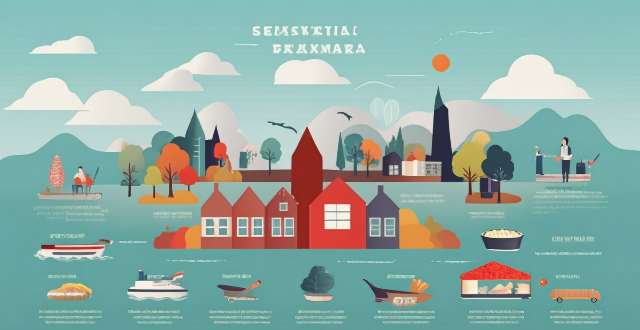The essay discusses the relationship between climate change, food security, and national stability. Climate change is causing extreme weather events that reduce crop yields and threaten biodiversity, leading to water scarcity. Food insecurity can result from these impacts, causing economic downturns, social unrest, migration, and political instability. Stable nations are better equipped to address these challenges through resource allocation, research, international cooperation, and emergency response.

The Relationship between Climate Change, Food Security, and National Stability
Introduction
Climate change, food security, and national stability are interconnected issues that have significant implications for global development and peace. This essay will explore the relationship between these three factors, highlighting the ways in which they influence one another and the potential consequences of their interaction.
Climate Change
Climate change refers to the long-term alteration in Earth's climate patterns caused by human activities such as burning fossil fuels and deforestation. It has led to rising temperatures, more frequent extreme weather events, and changes in precipitation patterns. These changes can have far-reaching effects on agriculture and food production.
Food Security
Food security exists when all people, at all times, have physical and economic access to sufficient, safe, and nutritious food to meet their dietary needs and food preferences for an active and healthy life. It involves four key dimensions: food availability, food accessibility, food utilization, and stability over time.
National Stability
National stability refers to the condition of a country being free from civil unrest or political turmoil. It is often characterized by strong institutions, effective governance, social cohesion, and economic prosperity. A stable nation is better equipped to manage crises and maintain order.
The Interplay Between Climate Change, Food Security, and National Stability
Climate Change Impacts Food Security
1. Reduced Crop Yields: Extreme weather events like droughts and floods can destroy crops, reducing overall yields and affecting food availability.
2. Pest and Disease Outbreaks: Warmer temperatures can lead to increased pest populations and new diseases that threaten crops.
3. Loss of Biodiversity: Climate change can cause the extinction of plant species essential for food production.
4. Water Scarcity: Changes in precipitation patterns can lead to water scarcity, making irrigation difficult and affecting crop growth.
Food Insecurity Threatens National Stability
1. Economic Impacts: Decreased agricultural output can lead to job losses and reduced incomes, exacerbating poverty.
2. Social Unrest: Food shortages can lead to protests and civil unrest as people demand access to basic resources.
3. Migration: People may flee areas affected by food insecurity, leading to migration pressures on neighboring regions or countries.
4. Political Instability: Governments that fail to address food insecurity may face challenges to their legitimacy and power.
National Stability Influences Response to Climate Change and Food Security
1. Resource Allocation: Stable governments are better positioned to invest in adaptation measures and mitigation strategies for climate change.
2. Research and Development: Stable nations can focus on researching resilient crop varieties and improving agricultural practices.
3. International Cooperation: Countries with strong institutions can engage effectively in international efforts to combat climate change and ensure global food security.
4. Emergency Response: Stable governments are more capable of responding quickly and effectively to disasters related to climate change and food shortages.
Conclusion
The relationship between climate change, food security, and national stability is complex and multifaceted. Climate change poses significant threats to food production, which in turn can undermine national stability. Conversely, stable nations are better able to manage the challenges posed by climate change and maintain food security for their populations. Addressing these issues requires coordinated global efforts to mitigate the effects of climate change while strengthening food systems and fostering enduring national stability.